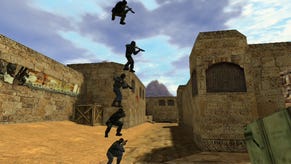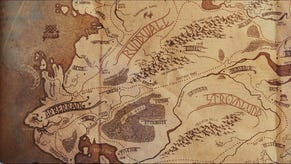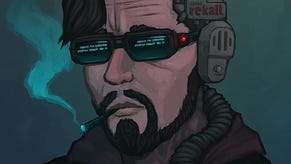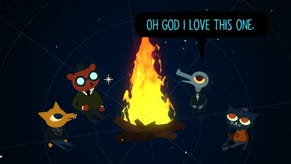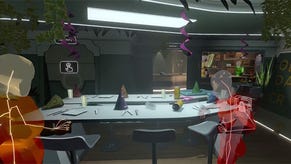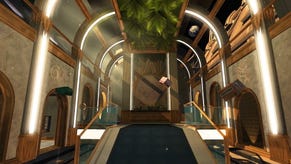Fullbright On What Lies Beyond Gone Home
Leaving The Nest
Gone Home has been out for a little while now, and in that time it has captured the heart of literally every human being on Earth. Also Alec, but we don't really know what manner of creature he is. So then, what's Fullbright up to these days? Resting on its laurels? Basking in the motivation-searing afterglow of past success? Finally realizing that - oh crap - they totally forgot to add in all the guns? Turns out, the answer is none of those things, despite overwhelming plausibility. The next immediate step, then, is more content for Gone Home, but not the sort that might muck up the game's musty, lived-in history. And after that? Well, probably don't expect Gone Home 2.
Gone Home was created by four people (three of them living and working out of the same house in Portland, Oregon) over the course of a grueling year-and-a-half span. You'd think, now that it's out, that'd warrant a much-needed vacation. A step into morning sunlight after a very lengthy night. And you'd be right. Sort of.
The game is done. Odds are, its story and content will remain untouched, even though writer/designer Steve Gaynor fully admits that he's not quite fully satisfied with things like [MINOR SPOILER] the basement area's design or the mom character's development [END SPOILER]. And there's a good reason for this: Gaynor and co love their first bouncing baby architectural structure, but they need some space.
“If it's successful commercially, that's great, because it gives us freedom to do another thing we want to do on a schedule without having to be, like, 'Oh shit, if we don't ship something else in another six months, we're all gonna be broke,'" Gaynor explained to RPS. "I think that's the dilemma a lot of triple-A studios fall into. You start a triple-A studio to make your dream project, and you hire 50 people or 100 people or whatever, and your game breaks even or whatever. But you can't just take a breather. You have to keep paying those people. So you're like, 'OK, I guess we'll just make this game again but put a two on the end.'”
"Or you spend so much time with your head in a game – we worked on Gone Home for a year and a half – and you think in terms of that game for a long time after you've released it. I think that, if you go straight into another project, you're in danger of thinking of it in terms of the thing you just made.”
Gone Home will, however, at least see one addition to its age-gnarled trunk of tricks. Gaynor wants to put some distance between himself and the game, but he absolutely does not want to leave it behind. And so, instead of cluttering up the place with all manner of side rooms of subplots, Fullbright's planning to toss in some extra background. For free.
“We're working on a commentary mode right now, and we're going to release that as free DLC," Gaynor said after, I kid you not, banging on a table and laughingly bellowing "exclusive" because he is delightful. "If you have it on Steam, you'll just get it. We don't have a date for it yet, but it'll be relatively soon. We're aiming for the short-term, and we've already recorded most of it.”
“A bunch of icons appear, and you'll either hear one of us or – and I haven't talked with her yet – maybe our voice actress, Sarah Grayson. I want to talk to her about the experience of playing Sam. So it's a bunch of background stuff. Some easter-egg-y stuff, too. I actually got to talk to Corin Tucker, who's the lead singer of [riot grrrl bands] Heavens to Betsy and Sleater-Kinney. I got to get her on the tape talking about her experiences at the beginning of the riot grrrl scene. So you've got the four of us talking day-to-day, but you also have people who contributed their own presence and identity through their voice or music. That's really exciting to me.”
That's not necessarily the only bit of sprucing-up Gone Home will receive, either. Don't expect a total remodeling, but more detail work can't hurt. "It's stuff like [the commentary]," said Gaynor. "We can keep supporting Gone Home in certain ways as we're trying to get in the headspace of what our actual next game will be.”
That, of course, is the next big question. Where does Fullbright go after Gone Home hit home for so many? Once upon a time, the team would've been shuffled into another wibbly, wobbly, hyper-stuffed triple-A deck, but now it has full creative freedom. And that's magnificent, until you realize that limitless choice is actually the scariest thing in the entire universe. Decisions. Responsibility. The weight of the world. But you don't always have to bulldoze everything in order to begin anew. Foundations are important, and Gaynor thinks he's found a solid one.
“I'm inspired by indie studios that build on what they had success with, but do something new and interesting with it," he explained. "The guys at Supergiant, who made Bastion, have been an inspiration to me the whole time. The idea of them taking basic facts of Command & Conquer, which they worked on, and making something really striking and unique in Bastion [was great]. And now they're not going, 'We're gonna throw it all out. We're gonna make a flight sim.' Instead, they're saying, 'We've got Bastion, and we want to build off that to make a really new, unique experience that stands on its own with Transistor.' The core way you interact with it is different, but it's built on the base of the first thing they made that had a lot of potential.”
“I guarantee that we're not going to be doing Gone Home, but in a different house. I don't think people would be interested in something that amounts to, 'Oh, it's just Gone Home, but different content.' But we're also not going to make something that we have no experience with whatsoever. So it's about walking the line and figuring out what you can add or change to make the result totally stand on its own – but to also be fed by this other thing that built the framework.”
I hope this one comes with tissues.



